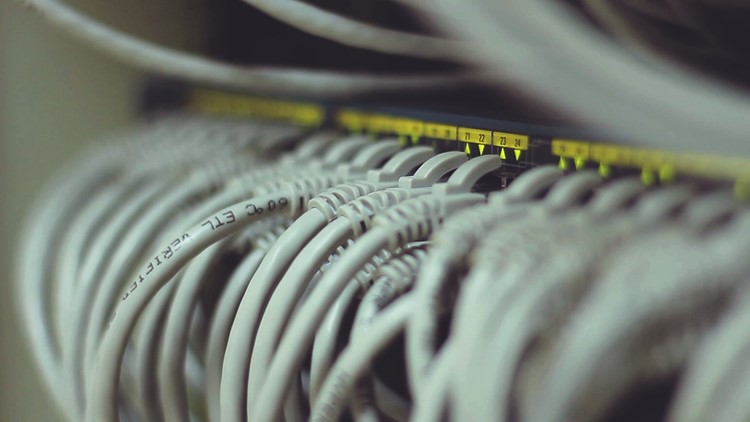GRAND RAPIDS, Mich. — Over $20.5 million in federal funds has been given to Michigan to expand access to high-speed internet for hundreds of thousands of Michiganders, making the state the second in the nation to receive the grant.
The money, as a part of the $1.44 billion State Digital Equity Capacity Grant Program, aims to tackle disproportionate internet access Michigan residents face across the state.
According to a press release from the Michigan Department of Labor and Economic Opportunity, a large portion of the funds will be allocated to the Michigan Inclusive Training, Technology, and Equity Network—a new initiative by the state to establish "regional resource hubs across the state."
The program also creates "Digital Navigators," who are in place to help residents "overcome barriers to internet use and enhance digital skills by providing crucial information and resources."
Allie Herkenroder, digital equity director for the Michigan High Speed Internet Office, says the money is a crucial next step in making the internet accessible to everyone.
"Until you're placed in a situation where you don't have access to the internet, you don't think about it. So, our goal is to make it so that it's just one of those things that you don't have to think about every day," Herkenroder said. "Being able to make sure that if folks need support with digital skills, they have the ability and the knowledge and resources to be able to obtain those digital skills and essentially help meet the needs of the individuals, whatever those may be."
Herkenroder's team spent all of 2023 developing what they call a Digital Equity Plan, connecting with residents across the state on the challenges they face when accessing the internet. That feedback directly molded how the Digital Equity Plan is shaped.
"Digital equity is very individualized and it's highly regional. We have structured our digital equity plan to reflect like that. So if there are needs for workforce development in the Grand Rapids area, we anticipate our funding to be able to support workforce development in the Grand Rapids area," Herkenroder said. "The goal is to help meet the needs of each region in the state, for whatever region, for whatever those needs are."
"We have created a structure that allows for that individuality to flow throughout the different parts of the state," Herkenroder added.
Herkenroder said most of the issues with Michigan's internet accessibility flies under the radar. A map published by Connected Nation, an organization focused on internet access and expansion, shows a substantial amount of West Michigan homes are either unserved, experiencing speeds of less than 25 Mbps, or underserved, experiencing speeds between 25 Mbps and 100 Mbps.
These differences lead to an unequal internet experience across the state—one many don't know could be affecting them.
"Almost everyone has probably come into contact with the digital divide and not know," Herkenroder said. "Digital equity is really this holistic goal of being able to make sure that not only can people utilize the internet for the fun things, like movies and video games, but that they can take the resources that are available to them online and apply them to direct meaningful change to help better their lives."
Once access to the internet is gone, or its reliance is necessary, the issues start to show themselves, Herkenroder said.
"We all saw the impact of not having internet on our state in 2020 and we saw how many students were unable to complete their homework. We saw how many folks lost their jobs because they weren't able to fulfill their duties outside of the workforce," Herkenroder said. "We see impacts of the digital divide everywhere in ways that we may not necessarily think they're being impacted. I mentioned education. I mentioned workforce. Cybersecurity is another aspect that a lot of people don't necessarily think about."
"If you don't have the knowledge to know that you're getting spammed or you're under a phishing attack, you are directly impacting your life," Herkenroder added. "These dollars will help us close the digital divide that is present in Michigan so that everybody can utilize the internet for the best of its ability."



